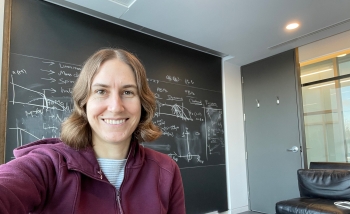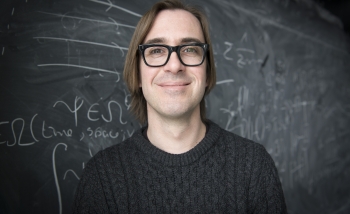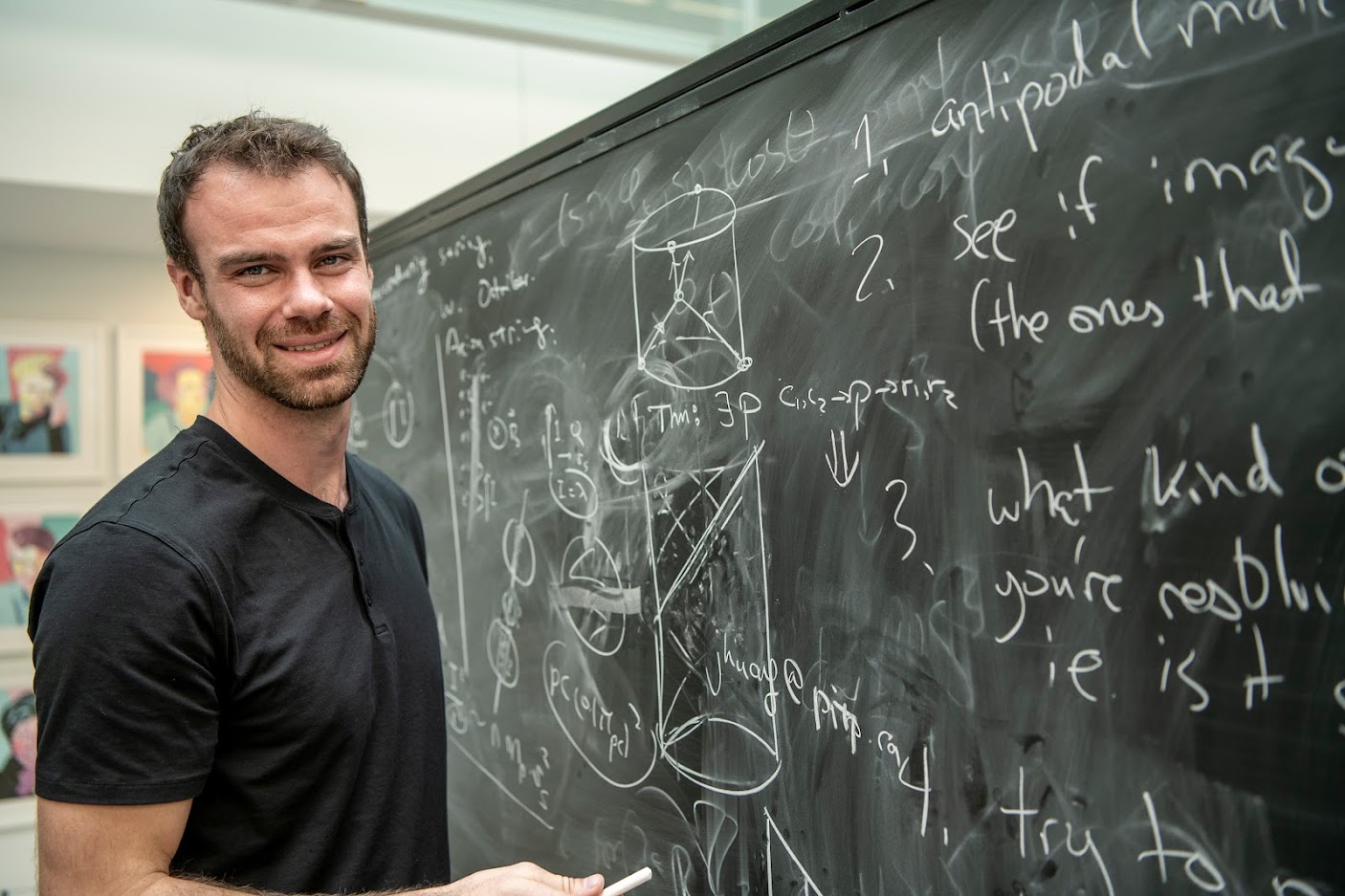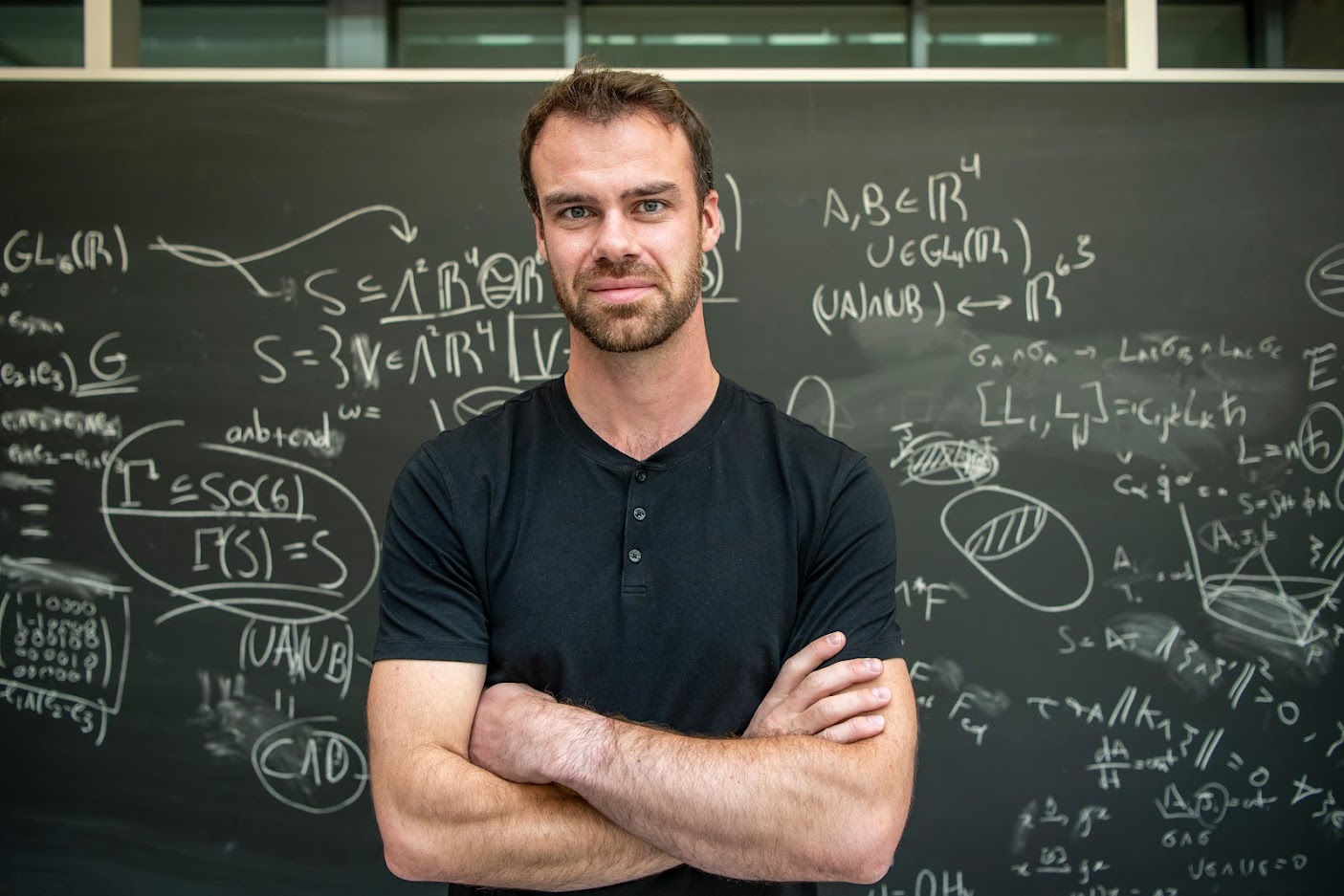Les recherches d’Alex May combinent l’information quantique et la gravité quantique, en utilisant des idées de chaque domaine à l’autre. Il est également intéressé aux fondements quantiques, qui représente la base mathématique et conceptuelle sous-jacente de la théorie quantique.
Alex May déclare que « L’Institut Périmètre est l’un des rares endroits à posséder cette expertise et je suis ravi d’interagir avec les spécialistes des fondements quantiques. »
Les recherches actuelles d’Alex May utilisent la théorie de l’information quantique, en particulier les outils initialement développés pour être utilisés en cryptographie. ses recherches vise à développer de nouvelles perspectives sur la correspondance anti-de Sitter/théorie conforme des champs, ou AdS/CFT. Cette théorie propose un lien entre la gravité quantique et les théories quantiques des champs.
« Il existe un sujet particulier dans la théorie de l’information quantique qui a été développé à l’origine dans le contexte de la cryptographie quantique, connu sous le nom de « calcul quantique non local ». Nous avons récemment réalisé qu’il s’agissait d’un sujet important pour la compréhension de l’AdS/CFT », déclare Alex May.
M. May est d’avis que les connaissances se propagent également dans l’autre sens : AdS/CFT peut également offrir de nouvelles perspectives en cryptographie quantique.
Le calcul quantique non local était auparavant un sujet intéressant mais de niche en cryptographie, sans liens très étroits avec d’autres sujets. Toutefois, May et ses pairs ont récemment compris qu’il est en fait étroitement lié à de nombreux sujets fondamentaux de la cryptographie. Par extension, tous ces sujets fondamentaux ont maintenant également des liens avec AdS/CFT et la gravité quantique.
« Le lien entre la cryptographie et la gravité est soudainement devenu très riche et profond, et je suis enthousiaste à l’idée de faire progresser ce lien », déclare May. En précisant que les sujets cryptographiques qu’il étudie ont des implications pratiques, May a fait part de son intérêt pour « l’interface entre la recherche fondamentale et des questions plus pratiques ou technologiques. L’Institut Périmètre a été fondé avec ce type de lien à l’esprit. »
M. May qui est originaire de Vancouver, a fait ses études de premier cycle à l’Université McGill et a obtenu son doctorat à l’Université de la Colombie-Britannique en 2020. Il a ensuite bénéficié d’une boursier postdoctoral de deux ans à l’Université Stanford. Son arrivée à l’Institut Périmètre représente, en quelque sorte, un retour à la case départ.
« L’Institut Périmètre était dans mon viseur depuis longtemps », dit-il. « En tant qu’étudiant de premier cycle, j’ai eu la chance de venir ici et de visiter l’établissement, et j’ai été vraiment impressionné par cet endroit. J’avais 19 ans et j’étais tout émerveillé quand j’ai vu l’Institut Périmètre. C’est passionnant d’avoir maintenant un poste ici et de m’orienter vers de nouvelles directions passionnantes en physique. »
Lorsqu’on lui demande ce qui le motive à se consacrer à la physique théorique, May répond que ses recherches s’inscrivent dans un projet plus vaste, un grand projet visant à reconstituer le fonctionnement de l’univers :
« Tout comme les autre membres de l’Institut Périmètre, je suis vraiment enthousiaste à l’idée d’essayer de répondre à des questions vraiment fondamentales sur le fonctionnement de l’univers. Comment a-t-il commencé? Que se passera-t-il dans un avenir lointain? Il existe toutes sortes de scénarios exotiques. Vivons-nous sur une brane dans un espace de dimension supérieure? Existe-t-il une sorte de multivers? », dit-il. « J’aimerais comprendre toutes ces choses. »
À propos de l’IP
L'Institut Périmètre est le plus grand centre de recherche en physique théorique au monde. Fondé en 1999, cet institut indépendant vise à favoriser les percées dans la compréhension fondamentale de notre univers, des plus infimes particules au cosmos tout entier. Les recherches effectuées à l’Institut Périmètre reposent sur l'idée que la science fondamentale fait progresser le savoir humain et catalyse l'innovation, et que la physique théorique d'aujourd'hui est la technologie de demain. Situé dans la région de Waterloo, cet établissement sans but lucratif met de l'avant un partenariat public-privé unique en son genre avec entre autres les gouvernements de l'Ontario et du Canada. Il facilite la recherche de pointe, forme la prochaine génération de pionniers de la science et communique le pouvoir de la physique grâce à des programmes primés d'éducation et de vulgarisation.
Ceci pourrait vous intéresser
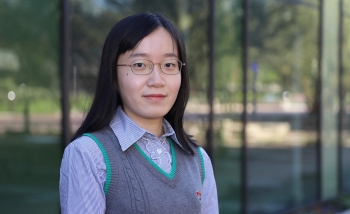
L’Institut Périmètre accueille un nouveau membre du corps professoral de recherche, Sisi Zhou
septembre 25, 2023
